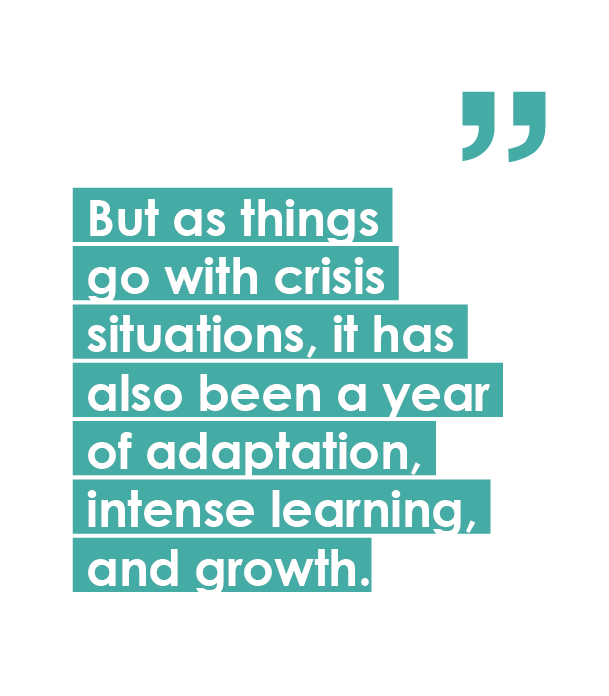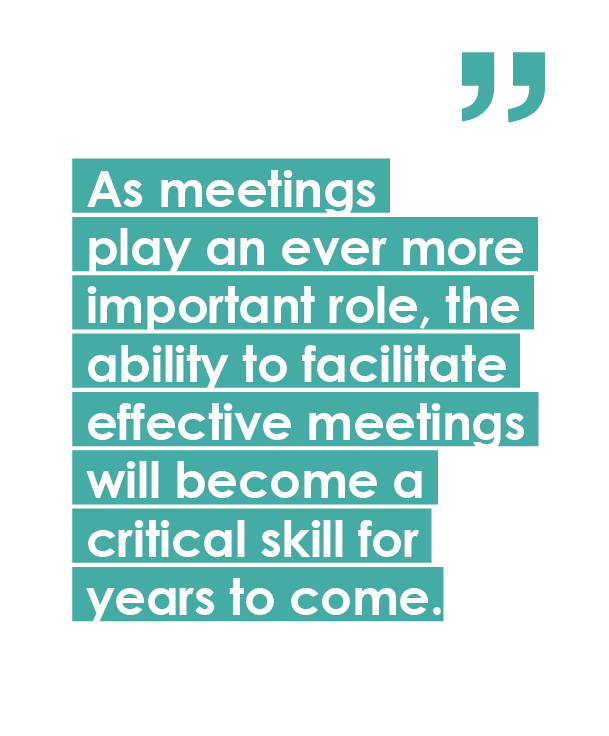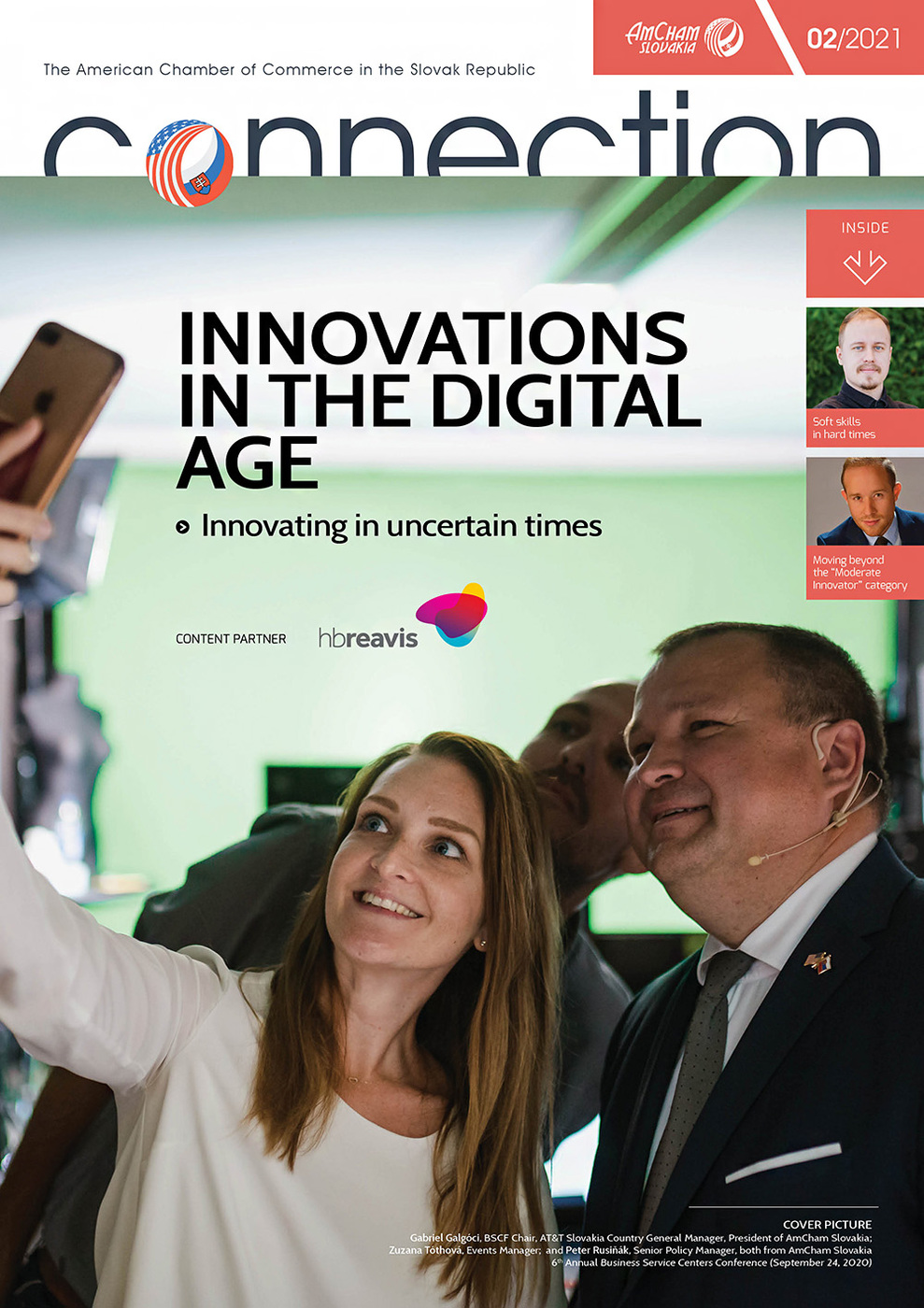But as things go with crisis situations, it has also been a year of adaptation, intense learning, and growth. Both for us as individuals as well as for businesses. While some industries plummeted, others, like e-commerce, online food delivery, or video-conferencing technology, advanced five to ten years in innovation.
 The same could be said about meetings. How we meet, learn and collaborate has undergone the most radical transformation, unlike any other area of our work lives. Practically overnight, we moved from physical meeting rooms to the virtual spaces of Zoom, Microsoft Teams, or Webex. These spaces have become our online headquarters and our focal meeting points.
The same could be said about meetings. How we meet, learn and collaborate has undergone the most radical transformation, unlike any other area of our work lives. Practically overnight, we moved from physical meeting rooms to the virtual spaces of Zoom, Microsoft Teams, or Webex. These spaces have become our online headquarters and our focal meeting points.
‘Meetings’ and remote work made the covers of the world-leading newspapers and magazines and became the number one topic across the globe. In nine years of Slido’s history, we haven’t seen such interest in the topic. Still, a pre-COVID negative aura hung around meetings and dominated the narrative.
I would like to challenge that view. Would we be able to function without meetings? I don’t think so. More than ever, meetings have become a business critical function driving companies forward, gluing the teams together, and compensating for all the social elements we lost.
This was possible thanks to some incredible innovation in the video conferencing and collaboration technology. Just imagine the outbreak would have happened 15 years ago. Would we be able to switch to remote work as easily as today? Or, is it more likely that the entire world would just shut down? I’ll let that question hang in the air.
 But technology itself is not omnipotent, especially when it comes to meetings and interpersonal interactions. Human touch plays an equal part here. From early days at Slido, we’ve adopted the mantra that the use of technology needs to be matched with the right skill. Only then can we reach the full potential of meetings and events.
But technology itself is not omnipotent, especially when it comes to meetings and interpersonal interactions. Human touch plays an equal part here. From early days at Slido, we’ve adopted the mantra that the use of technology needs to be matched with the right skill. Only then can we reach the full potential of meetings and events.
Technology has done its part of innovation. Now it’s up to us to innovate and upgrade our skill set to maximize the potency of meetings. For many of us, it hasn’t been a priority in our careers. But as meetings play an ever more important role, the ability to facilitate effective meetings will become a critical skill for years to come.
What are the skills that will help us lead better meetings? For starters, we need to start thinking intentionally about how we design meetings. Can you ask the team a question instead of presenting another statement? If yes, try it and engage in a discussion. Secondly, we need to build a skill of reading the virtual room and sensitively including all participants, whether verbally or with the help of technology (chat, polls, Q&A). Most importantly, we need to speak less and encourage our participants to speak more. The meetings are for them, after all.
Innovation needs constraints. Innovation needs difficulty. Innovation needs pressure. It applies to businesses as well as to individuals. It hurts but if we tackle the challenge head-on, we’ll come away more resilient, smarter, and stronger than ever before. And we will be unstoppable.
Juraj Holub, Chief Meeting Designer at Slido



Follow us